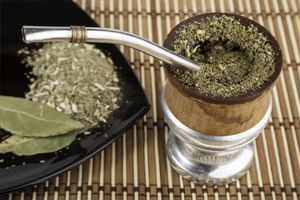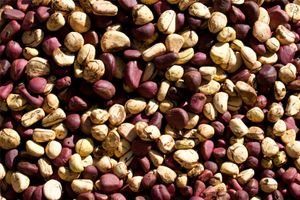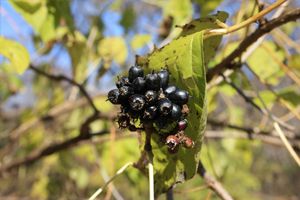5 natural products to fight fatigue
Whether it is physical or nervous, fatigue often results from poor lifestyle habits or health problems such as lack of sleep, malnutrition, obesity, allergies, cancer, overtraining or any infections in general . To address this issue, it is often necessary to address the source of the problem, but it is possible to use natural health products as a complement. Portrait of 5 of these proven products.
1-Valerian for better sleep
Valerian and sleep have been intimately linked for millennia. In ancient Greece, the doctors Hippocrates and Galen recommended its use against insomnia. In the Middle Ages herbalists saw in her a perfect tranquillizer. During the First World War it was even frequent to find soldiers in the pockets who used it to calm the nervousness caused by the bombings. Despite everything, and as surprising as it may sound, clinical research has yet to prove its efficacy against sleep deprivation. Some studies note a sensation of sleep improvement1,2 as well as a decrease in fatigue3, but these perceptions are not validated by any objective criteria (sleep time, sleep duration, number of awakenings during the night ...).
Commission E, ESCOP and WHO nevertheless recognize its use in treating sleep disorders and, consequently, fatigue. Valerian can be taken internally 30 minutes before bedtime: 2 to 3 g of dried root is allowed to infuse for 5 to 10 minutes in 15 ml of boiling water.

2-Ginseng for toning the body:
According to Chinese legend, only wa-pang-suis, specially trained hunter-gatherers, could pick this plant called "divine grass." And for good reason: they lent to their roots the ability to change places! Even today, ginseng is considered by almost a quarter of the world population to be a magic plant with innumerable virtues. Among the latter are the ability to tone the body of tired or impaired people. This faculty would result from the action of certain molecules contained in ginseng and called ginsenosides, according to the theory of the Russian researcher Lazarev. This is why ginseng is an "adaptogenic" substance, that is, capable of improving the health of the body according to its needs (raising or lowering body temperature and blood pressure, losing or gaining weight, Stimulate or calm the central nervous system, etc.). Difficult in these conditions to meet the requirements of modern medical research ... This one showed nevertheless that the ingestion of ginseng allowed to stimulate the immune system.
Nevertheless, Commission E and the World Health Organization (WHO) recognize the use of ginseng (Asian) to tone the body of tired or impaired persons, restore the capacity for physical work and intellectual concentration, and help people Convalescent to regain strength. Ginseng may be taken as a standardized extract (containing 4 to 7% ginsenosides) at 200 mg, 1 to 3 times per day, or in decoction by boiling 2 g of roots in 150 ml of water For 15 minutes.

3-Yerba Maté to fight against falling asleep
In the sixteenth century, the traveling story of a Spanish explorer reports that the Guarani Indians of Paraguay drink of a funny magic potion that promotes good mood and eliminates fatigue. This potion, prepared from an infusion of leaves, was soon to make a fury in Spain, to the point of urging the Jesuits to plant the cultivation of the trees that produce these very special leaves: the Yerba Maté. On the other side of the terrestrial globe, in India, it is also cultivated. It is part of the Ayurvedic Pharmacopoeia for the treatment of headaches and fatigue.
Simple coincidence? Scientific research has since demonstrated that caffeine contained in yerba maté stimulated the central nervous system, thus increasing attention and fighting fatigue1-4. Since 1988, the Commission has recognized the medicinal use of yerba mate to combat both mental and physical fatigue. Yerba Maté can be taken in the form of leaves (2 to 4g) which are infused into 150 ml of boiling water for 5 to 10 minutes. It is possible to take 2 cups a day.

4 -Eleutherococcus, a presumed energizing tonic:
-Eleutherococcus, a presumed energizing tonic:
Known to the Chinese for more than 4000 years, Eleutherococcus is a small shrub of the Araliaceae family whose main power would be to increase longevity. It is also lent the faculties to improve the appetite and tone the body. It would even be part of these "adaptogenic" substances which, according to the theory of two Russian scientists (Lazarev and Brekhman), increase the general resistance of the organism to the various forms of stress that threaten it. Indeed, researchers have discovered that eleutherococcus contains eleutherosides, substances with properties similar to those of ginseng ginsenosides. This is why it is sometimes called Siberian ginseng.
Scientific research has failed to prove the effectiveness of this natural product against fatigue. In two trials, 1.2 with tired people, eleutherococcus barely performed better than a placebo to improve their vitality. However, WHO and Commission E recognize its use as a tonic to stimulate the body in the event of fatigue or convalescence. The eleutherococcus can be taken as a dried root (2 to 4 g) which is infused into 150 ml of boiling water at the rate of 2 cups per day. It can also be taken in the form of tablets or fluid extract.
5-The cola, a short-term anti-fatigue :
The kola seeds, which had been used for millennia in Africa, were used to counteract physical and intellectual fatigue. They were the object of an important trade from the XIVth century: the great travelers plebiscite it before undertaking the long crossing of the Sahara to better tolerate the fatigue, the hunger and the thirst during the journey. This characteristic is explained by the presence of caffeine in its composition. In fact, a well-known brand of soda originally contained cola, which has since been replaced by synthetic caffeine.
The day-to-day experience and the results of scientific research undoubtedly show the kola's interest in the fight against short-term fatigue1-6, thanks to caffeine, which is known to stimulate the nervous system. Commission E recommends taking 2 to 6 g per day of dried powder in 2 or 3 times, which does not exceed 150 mg of caffeine per day.
